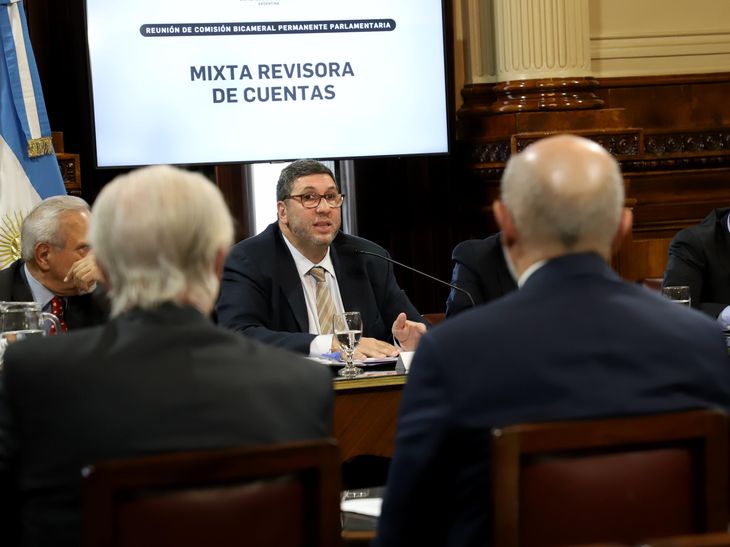Within the framework of the parliamentary call “Argentina 2025: Economic and Tax Perspectives“, the university authorities starred in the first day, emphasizing article 17 of the project of the Budget 2025, which sets a sum of around $3.8 billion to finance “operating expenses, investment and special programs of national universities“, simultaneously with the National Interuniversity Council (CIN) estimates that it will need almost double -$7.2 billion- to meet workers’ salaries, which implies almost 90% of the financing of higher-level institutions.
Another controversial article is article 27, which suspends until 2025 the minimum percentage of investment that corresponds to the National System of Science, Technical Professional Education and National Education. The proposed floor was 6% of GDP, a goal that was only reached in 2015 and that also includes the expenses of the provinces. In contrast, the detail can be seen in the budget items exclusively for the Nation, from where university resources are allocated: 0.91% in 2024, which represents a drop of 40.2% compared to the previous year according to the Observatory of Argentines for Education. In 2025, this percentage will would reduce to 0.88% of GDP.
Federal University March
Federal University March in Buenos Aires.
Mariano Fuchila
The demand for salaries, as well as in other areas such as health and initial education, is one of the most insisted upon by the university sectors and implied a new mobilization plan by the academic community: on November 12, a new Federal University March throughout the country.
University authorities in Deputies
The first university director who participated in the day of commissions in Deputies was Oscar Alpa, rector of the University of La Pampawho emphasized that the country had historical rates of between 0.7% and 0.8% of GDP for university financing and in the last year that figure reduced to 0.4%. “At this time of the year, The extended Budget based on September 2022 has not been executed in the lines of research and extension.” “At the level of comparison with other international systems, The prestige of our graduates is of excellent professional level in the training of researchers and doctors,” he contrasted.
He later spoke Germán Pinazo, vice-rector of the National University of General Sarmientowho cited a report from the Permanent Household Survey for the first quarter of 2024: “42% of university students belong to the 40% of the lowest income deciles, which means It is false that the poor do not go to university and do not graduate“The number of graduates has tripled with the creation of public universities in the suburbs.”
After detailing that in his institution laboratories cannot be inaugurated or careers opened due to lack of investment in infrastructurepointed out that the 27% reduction in the purchasing power of teacher salaries “is a cut that has no precedent in democracy.” “The attack is not as worrying as the lack of knowledge about how the system works, for example when talking about audits,” he noted and explained that monthly reports are made justifying salaries, so “a 30% cut cannot be justified, as is happening, when the only thing that can be auditing in theory is less than 10%”.
Alfredo Lazzeretti, rector of the University of Mar del Platacontinued asking that “increases in operating expenses be foreseen so as not to find ourselves again in March 2025 in a situation similar to that of this year that generated this massive mobilization.” “There are careers that require a large number of teachers and staff and that do not have a significant mass. I ask you, Do we want an Argentina without graduates in Physics, Mathematics and Chemistry?“, he continued and considered that “the equation that will energize the Argentine economy is capital, work and knowledge.”
Finally, Carlos Greco, rector of the University of San Martín, He explained that historically the university budget “is a formulation that allows support for a State policy.” “Nothing can lead us to the possibility of meeting the criteria of efficiency, effectiveness and quality if the criterion of sufficiency is not first met,” he reflected.
AGN authorities presented their audit plan: they will start with the UBA
The insistence of the national government on the need to review the accounts of the public universitiesand the obstacles from the Chamber of Deputies to determine their representatives for the General Audit of the Nation (AGN)encouraged the Congress will coordinate an action plan to clarify the destination of educational funds.
Juan Manuel Olmos

Juan Manuel Olmos, head of the General Audit Office of the Nation.
Mariano Fuchila
Days after the formation of the Joint Parliamentary Audit Committeethe president of the space -the deputy Miguel Pichetto (Federal Meeting) – anticipated that the February 1st will begin to “execute the program and work with a special commission that brings together the best audit staff so that in six months we can have a first report. “The proposal is not to go looking to see if someone stole a game but to see how the universities are doing.”
Both Pichetto and the other members of the commission, made up of senators and deputies from different blocks, reiterated that the rector of the University of Buenos Aires (UBA), Ricardo Gelpirequested the legislative sphere to audit the institution. In this framework, the faculties of Economic Sciences, Law and Medicine and Psychology will be the first institutions to be examined. “It seems to me that we are giving an effective response,” considered the owner of the space.
The president of the General Audit of the Nation, Juan Manuel Olmoshighlighted other relevant processes that would advance in “the equipment and purchase in Defense and Securitywhich is an area where there were no significant cuts; the food policy of Ministry of Human Capitaltaking into account poverty and indigence rates; the management of the Central Bank gold reserves; and all the management of Cammesa and the energy issue”.
Fernando Brovelli Report.-
Source: Ambito




